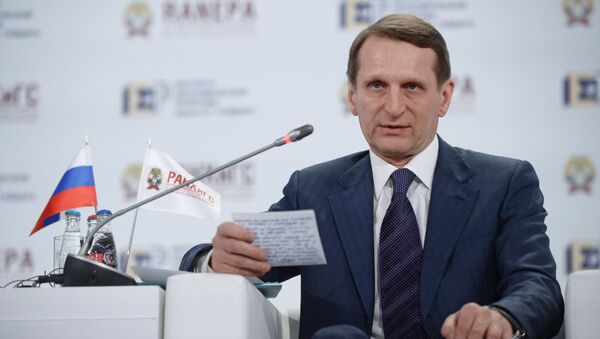"In fact, the so-called Europe needs Russia no less than Russia needs Europe. At the same time, Moscow has alternative options for cooperation, it can choose between large Europe and large Eurasia," Naryshkin said at the Primakov Readings international conference.
He added that Europe sought to increase its importance in world politics, but this process went backwards after events in Ukraine.
"By getting involved in the game aimed at changing regime in Kiev, by supporting the so-called anti-Russian sanctions, the Europeans, figuratively speaking, concreted with their own hands the dividing lines on the continent established after the Cold War end in connection with NATO expansion," Naryshkin said.
In the Soviet era, Primakov worked for USSR media organizations in the Middle East, later becoming Russia's envoy to Iraq during the historic 1990 Gulf War between a US-led coalition and Baghdad. He also served as Foreign Minister for two years prior to his prime-ministership under then-President Boris Yeltsin.
On June 26, 2015 Primakov died at the age of 85.
This year, the conference is held on November 28-30, and is attended by many high-ranking Russian officials, Russian and foreign economists, diplomats and public figures.




